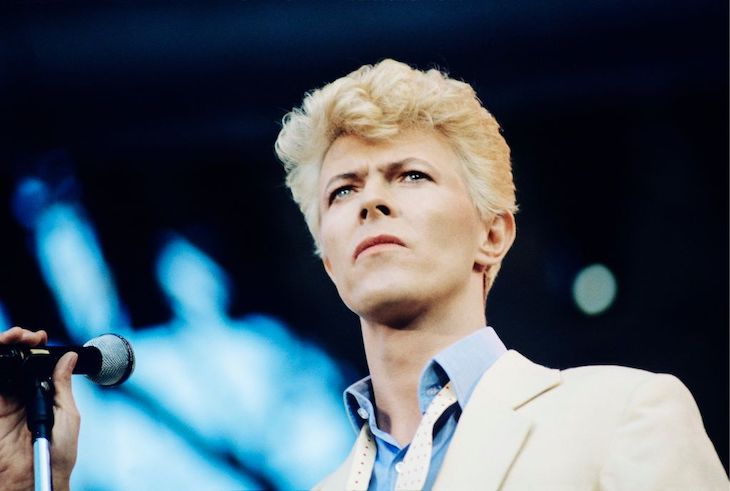Anyone who’s remotely interested in music, fashion, cinema, literature or indeed any of the things that make life worth living, will know that the late David Bowie bestrode all these areas, and more, like a particularly well-dressed South London colossus. But what passed undeservedly unnoticed during his lifetime, and beyond, was that Bowie was also a fully paid-up admirer of Britain’s greatest magazine. Indeed, he was so impressed by it – and its colourful and decidedly storied history – that it has been revealed that a musical that he was working on at the time of his death in 2016, set amidst the rogues, vagabonds and literati of the eighteenth century, was to have been titled The Spectator.
Granted, Bowie was not writing specifically about the goings-on behind this publication, but he was using some of the very earliest issues of the precursor to the title that you know and love today as a major source for the mysterious project that he had embarked upon towards the end of his life. While the magazine in its present form dates from 1828, it took its title – and subversive, playful attitude – from a periodical that was founded by the wits and politicians Richard Steele and Joseph Addison in 1711. Although it was relatively short-lived, lasting for just under two years, its sweeping and often highly critical approach to the early eighteenth century still managed to produce over 500 issues, and this legacy has continued to inspire writers, wits and visionaries ever since. Including, naturally, the man formerly known as David Jones.
Bowie’s notes for this never-produced show, which are to go on public display for the first time when the David Bowie Centre opens at the V&A East next week, hint at a sweeping and provocative take on life in 18th century London. The characters in The Spectator might have included everyone from the so-called ‘Thief Taker General’ Jonathan Wild, a master criminal who posed as a concerned and public-minded citizen, to his nemesis and rival Jack Sheppard, who Wild had executed so as to clear the path for his own nefarious activities. Both men’s names are visible on the assortment of cryptic records that Bowie kept, along with those of the artists Joshua Reynolds and William Hogarth. But what is even more fascinating is the way that the musician – a noted autodidact – had carefully judged the theatrical potential of the men and women written about in The Spectator.
Many of the characters were little known, but Bowie’s gaze was wide-ranging, and he seemed amused by everyone from a Mr Clinch of Barnet, who could imitate the sounds of horses, hounds and a bassoon “all with his own natural voice, to the greatest perfection” to the potential for an interesting subplot about two sisters, one “vain and severe”, who lost her potential husband to her kindlier, less beautiful sibling. His lifelong interest with Stanley Kubrick’s film of A Clockwork Orange, which influenced his stagecraft throughout the Seventies, finds an echo in his fascination with the Mohocks, a criminal gang of youthful well-born hooligans who might have attacked whichever figure Bowie took from The Spectator’s pages to be his protagonist. And some of the notes are both amusing and telling: one simply reads “Many sex scenes”.
It is, as with many of Bowie’s unfulfilled projects, a tragedy that The Spectator never came to pass, and we can only hope that a Bowie biographer-cum-cultural historian can resurrect his ideas and research in some form in the future. However, readers of the contemporary Spectator will be amused to hear that one of the Post-It notes simply reads “Coffee House”. The legacy of informed conversation and wit lives on here, to this day.







Comments